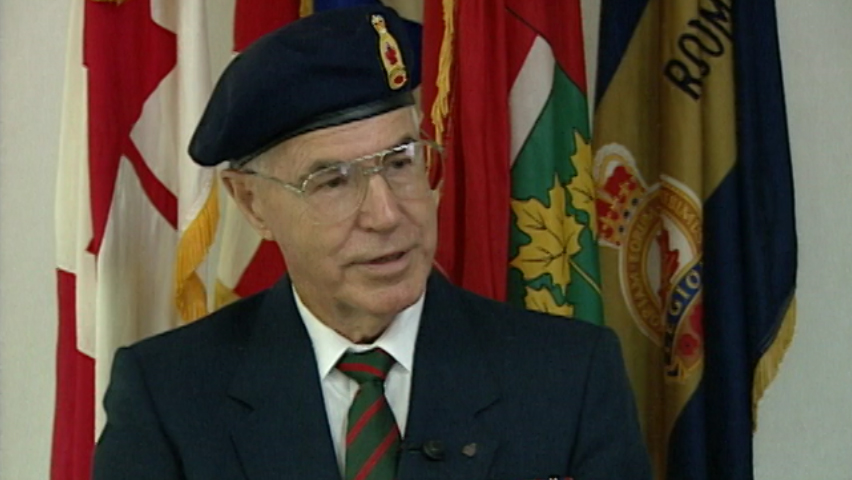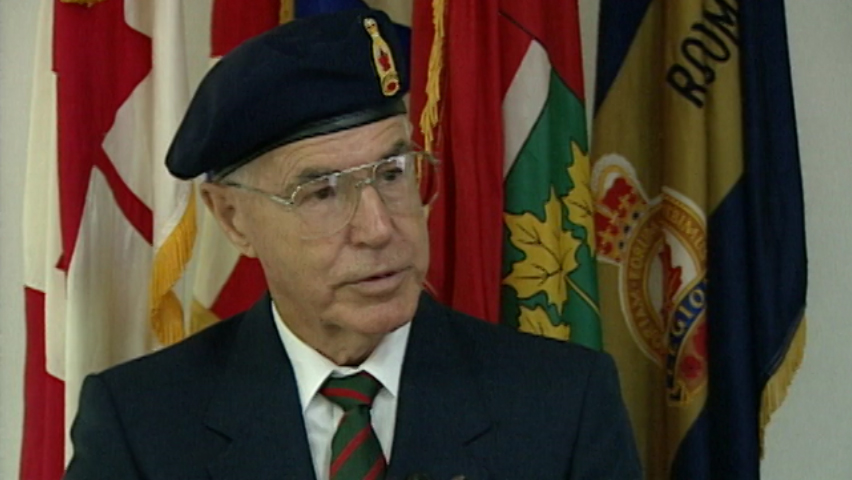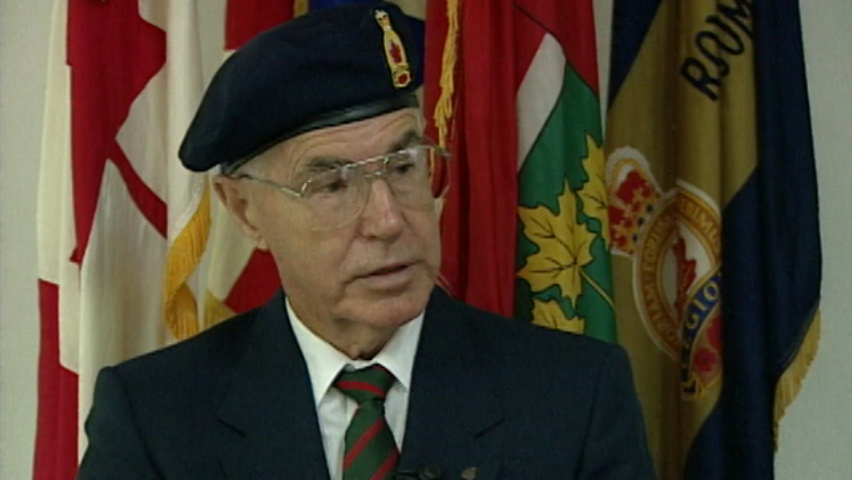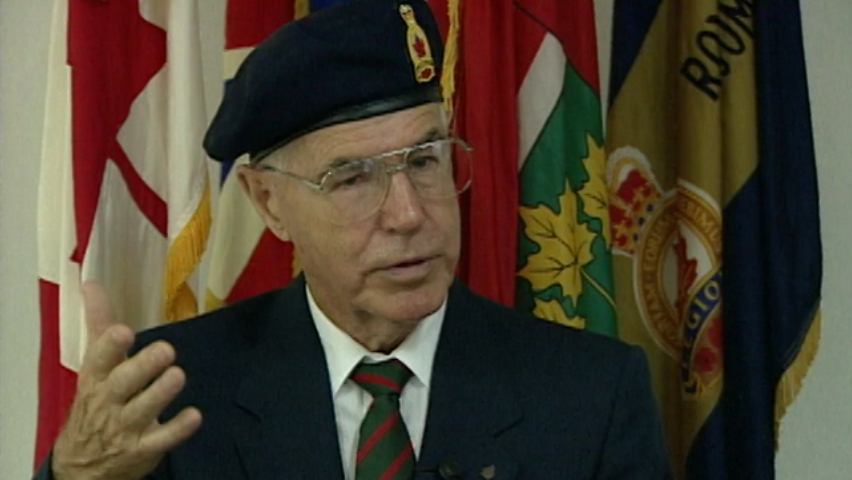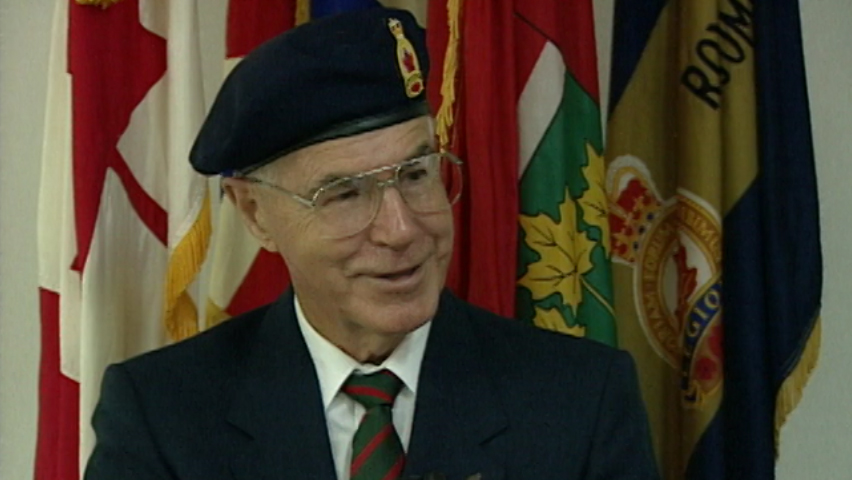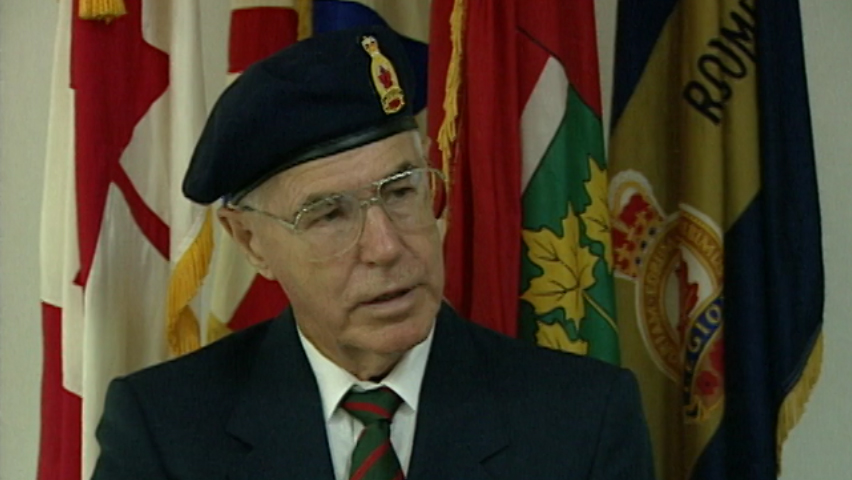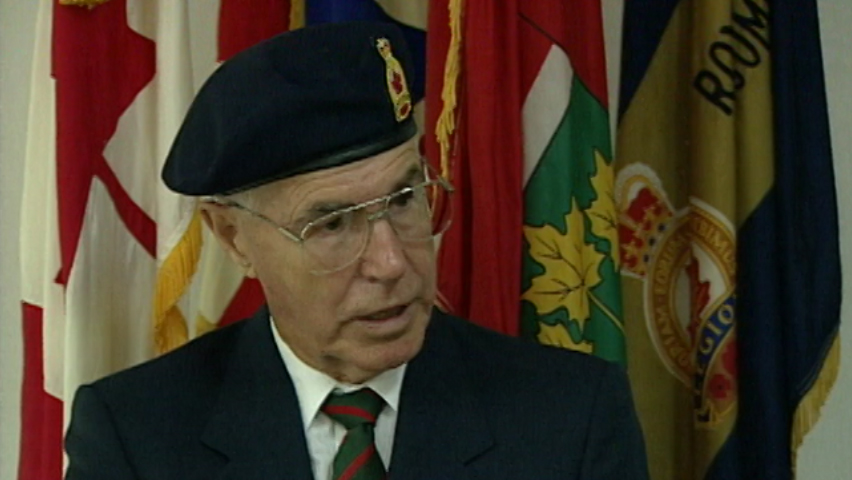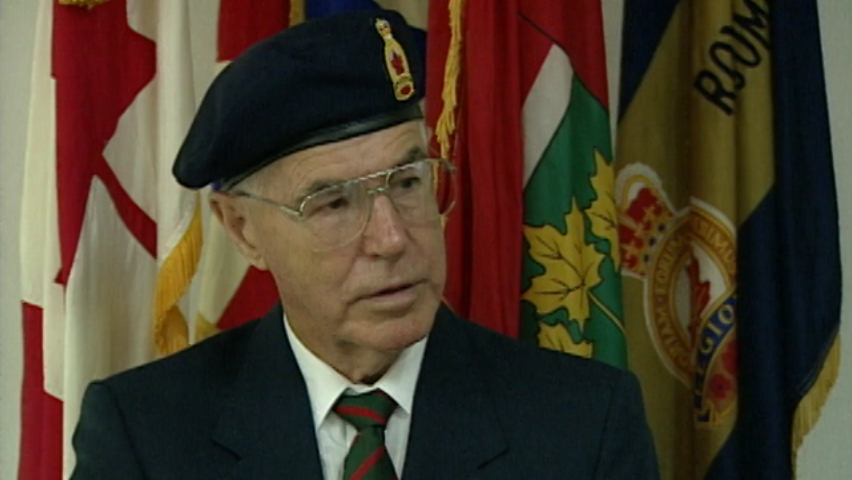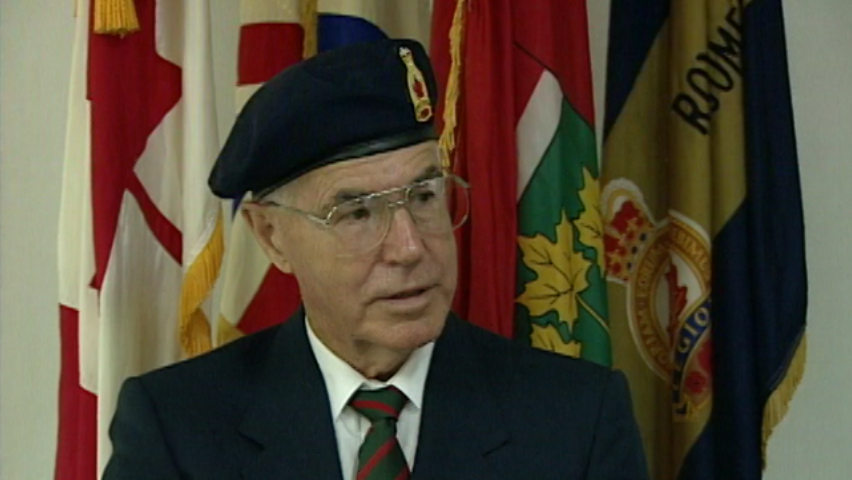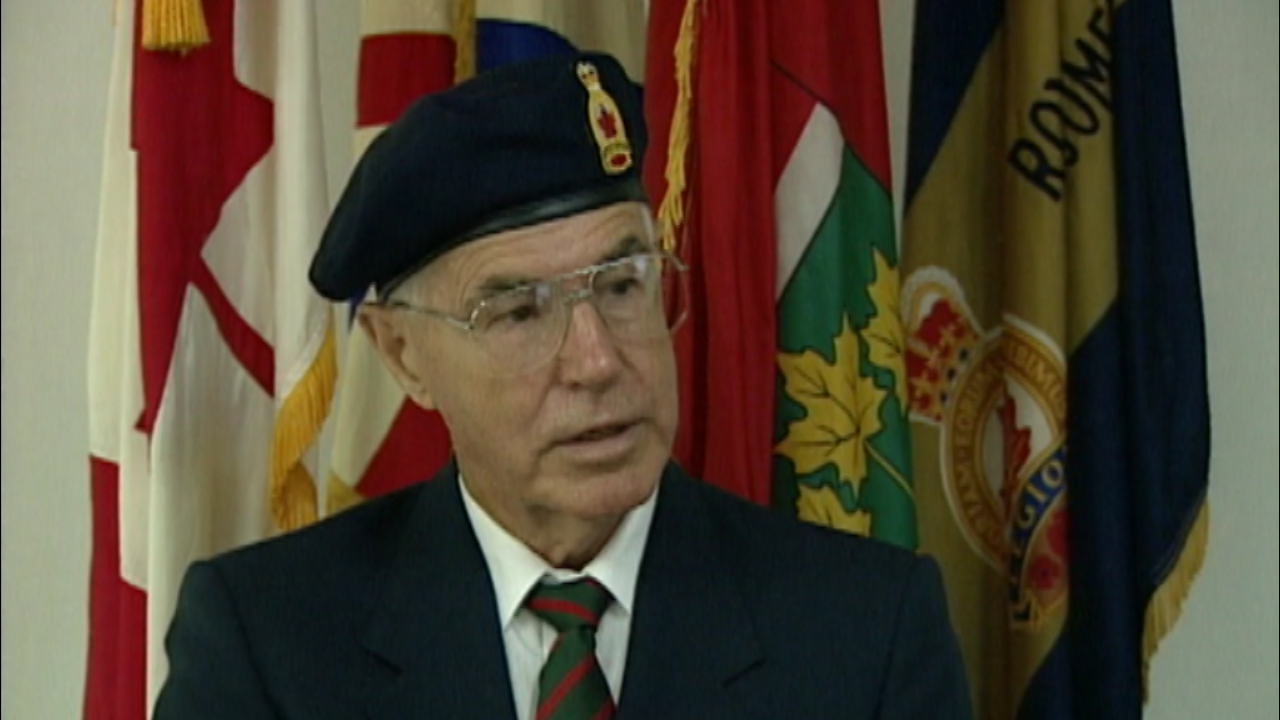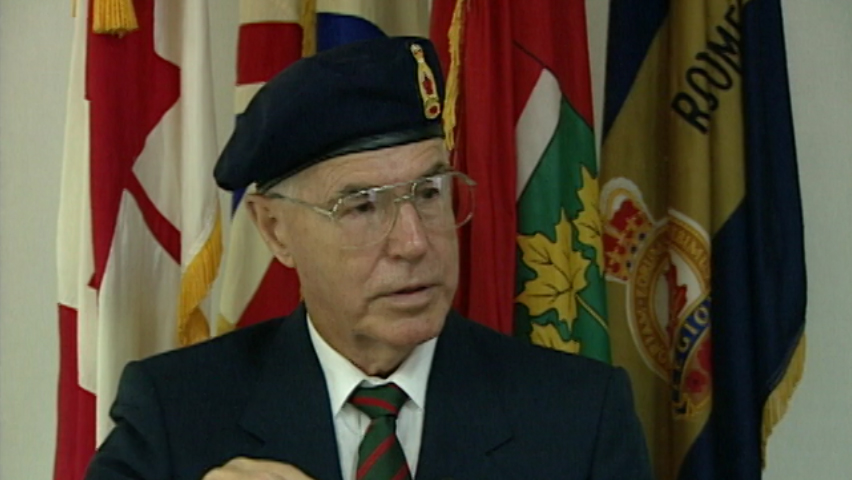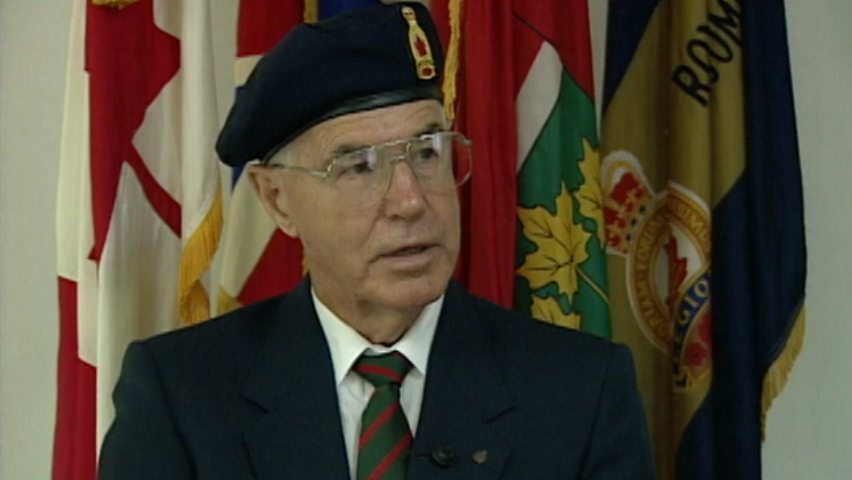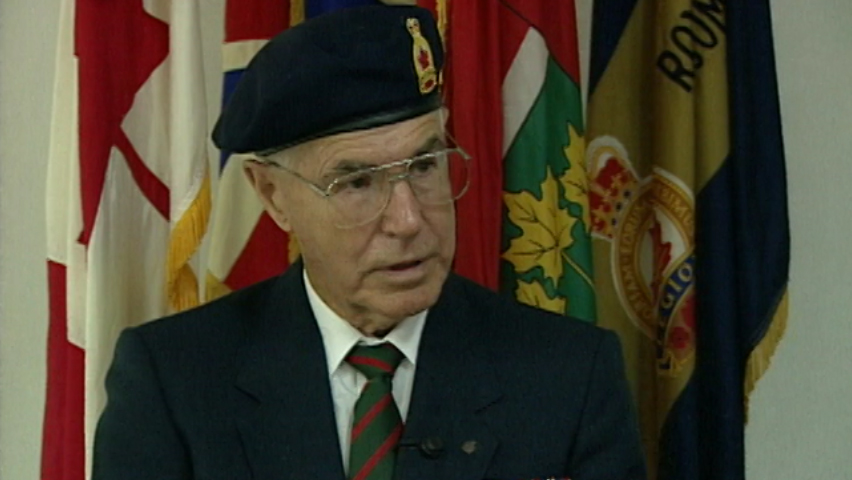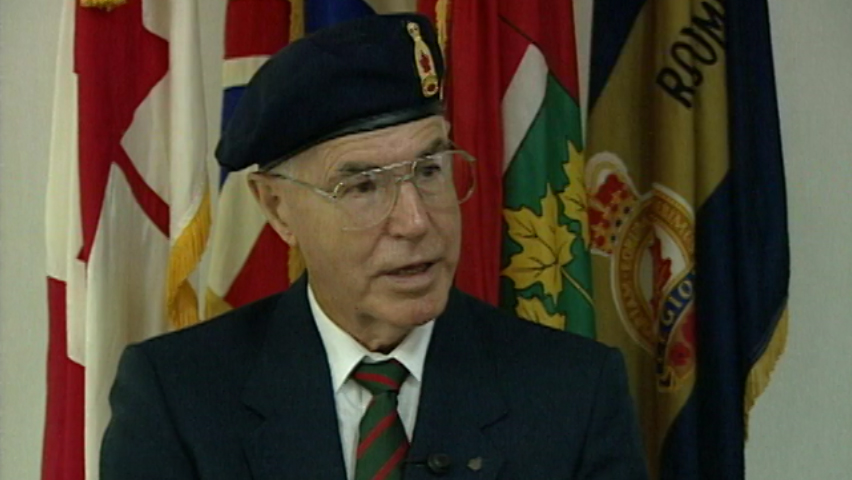Return to Civilian Life
Heroes Remember
Return to Civilian Life
Transcript
Description
War camps and illness weakened Mr Ewing physically but they did not affect his mind and his return to normal life.
Kenneth Alexander Ewing
Kenneth Ewing was born in 1925, the 4th oldest of 12 children. His father was a civil engineer for the province of New Brunswick which enabled them to manage fairly well during the Depression. His father was a Lieutenant in the First World War and signed up as an engineer in the Second World War from 1942 to 1945. Mr. Ewing quit school in Grade 10 at the age of 15 to join the army. He was unsuccessful in his attempt to join the Merchant Navy and joined the militia in the spring of 1940. He then joined the N.B. Rangers (militia). In November 1940, he went active with the Royal Rifles. He did his basic training in Botwood, Newfoundland, guarding the port. He did further guard duty in Botwood, Gander, and St. John's, Newfoundland, Valcartier, Quebec, and Saint John, New Brunswick. He was posted to Hong Kong as a rifleman in "A" Company. He was taken POW and sent to a slave labour camp in Japan where he endured beatings, disease, and very poor living conditions but considered himself lucky since other Canadians had been executed.
Meta Data
- Medium:
- Video
- Owner:
- Veterans Affairs Canada
- Duration:
- 04:25
- Person Interviewed:
- Kenneth Alexander Ewing
- War, Conflict or Mission:
- Second World War
- Location/Theatre:
- Canada
- Battle/Campaign:
- Hong Kong
- Branch:
- Army
- Units/Ship:
- Royal Rifles of Canada
- Rank:
- Private
- Occupation:
- Rifleman
Related Videos
- Date modified:



